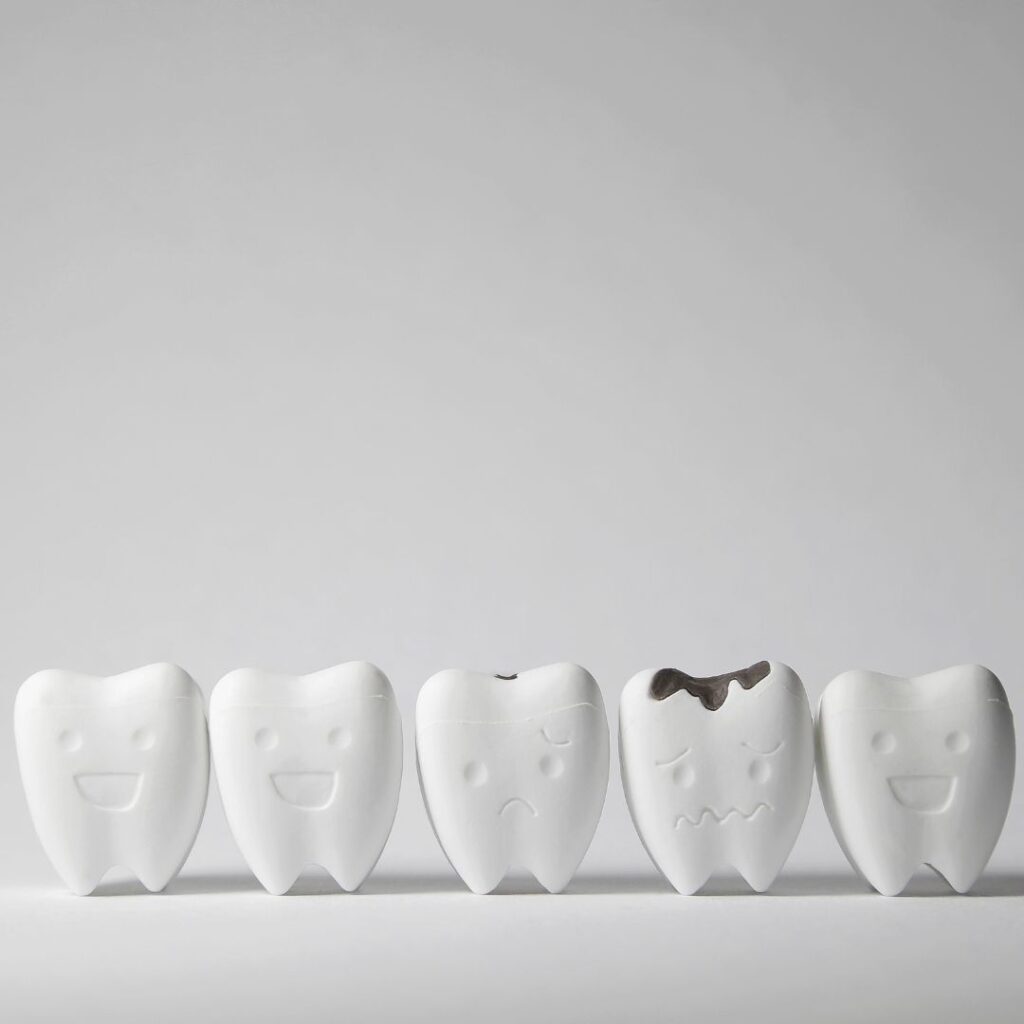Habits That Could Lead To Tooth Decay

Tooth decay, also known as dental caries or cavities, is a common oral health problem caused by bacteria that produce acid from food particles and plaque on the teeth. It is essentially the destruction of the tooth structure caused by acids that gradually eat away the enamel (outer protective layer) and dentin (inner layer) of the tooth.
6 Habits that could lead to tooth decay
1. Poor oral hygiene
Not brushing your teeth at least twice a day and flossing regularly can lead to the build-up of plaque and bacteria, which can cause tooth decay.
2. Consuming sugary foods and drinks
Frequent consumption of sugary snacks, sodas, and other sweet treats provides food for the bacteria in your mouth, increasing the risk of tooth decay.
3. Infrequent dental visits
Skipping regular dental check-ups and professional cleanings can allow dental issues to go unnoticed and untreated, potentially leading to tooth decay.
4. Smoking and tobacco use
Tobacco products can increase the risk of tooth decay and gum disease, as they contain harmful chemicals that damage teeth and gums.
5. Alcohol consumption
Excessive alcohol consumption can cause dry mouth, which reduces saliva production. Saliva helps neutralise acids and protect against tooth decay, so a lack of saliva can increase the risk of decay.
6. Using teeth as tools
Using your teeth to open packages, crack nuts, or bite on non-food objects can lead to chipped or cracked teeth, creating areas for bacteria to accumulate and cause tooth decay.
6 Habits that will help you prevent tooth decay
1. Brush your teeth at least twice a day
Brushing helps remove plaque and bacteria that can lead to tooth decay. Make sure to use a fluoride toothpaste and a soft-bristled toothbrush.
2. Floss daily
Flossing helps remove plaque and food particles from between your teeth and along the gum-line, where a toothbrush cannot reach effectively. This prevents tooth decay in those hard-to-reach areas.